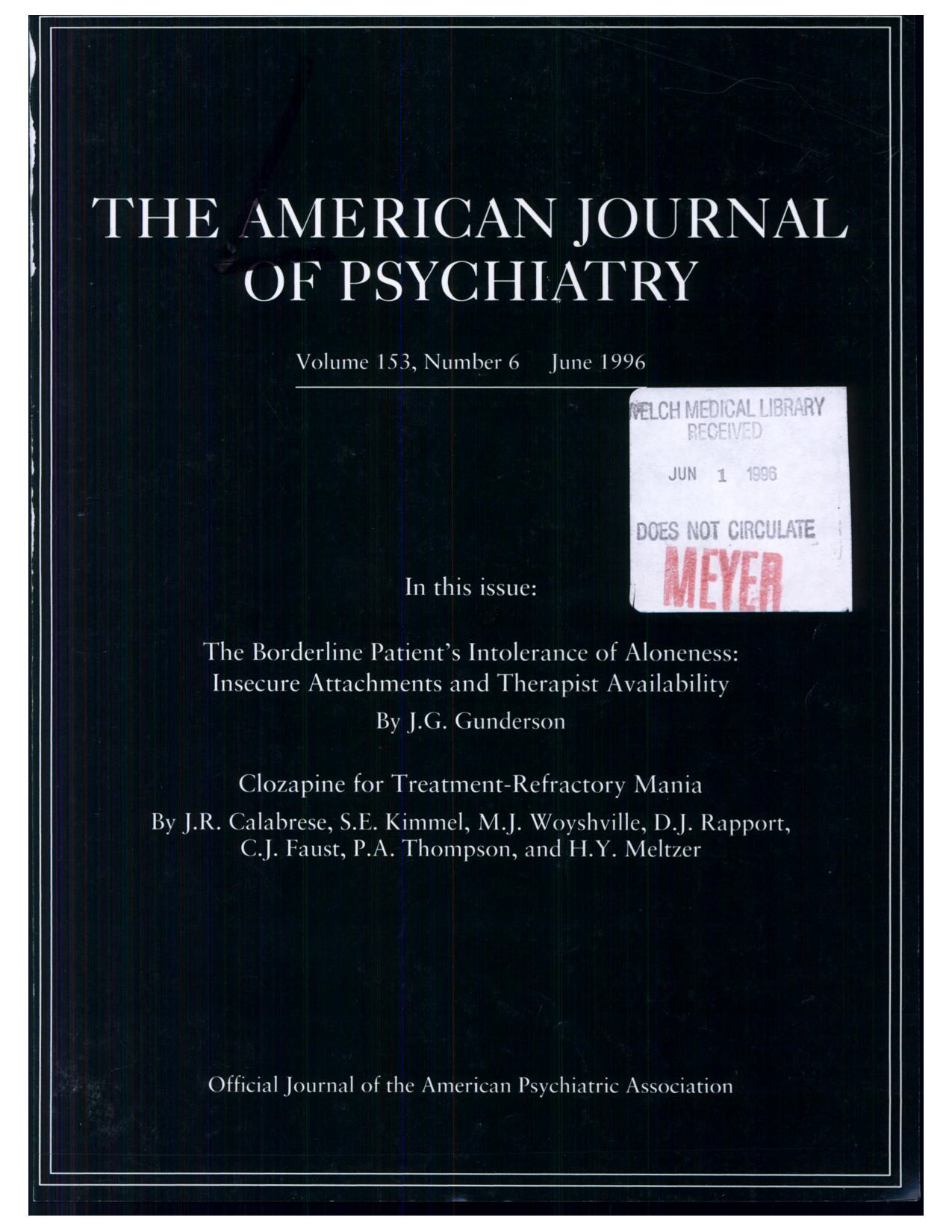Prediction of 3-year outcome of treated alcoholics by an empirically derived multivariate typology
Abstract
OBJECTIVE: This study examined whether an empirically derived multivariate typology can predict outcome in treated alcoholics. METHOD: Two hundred fifty-nine hospitalized male alcoholics were divided into two subtypes by means of cluster analysis of clinical factors. Type A showed the features of sporadic late-onset alcoholism, whereas type B manifested the characteristics of familial early-onset alcoholism. The prospective 3-year outcomes in the two subtypes were compared. RESULTS: The follow-up rate was 83%. The mortality and abstinence rates for type A patients (N = 98) were 15.3% and 32.7%, respectively, and for type B patients (N = 116), 23.3% and 18.1%, respectively. The age-corrected relative mortality risk and relative abstinence rate for type A patients compared with type B patients were 0.59 and 1.60, respectively. CONCLUSIONS: Familial early-onset alcoholism has a poor outcome in Japan, and this multivariate typology has high predictive validity.
Access content
To read the fulltext, please use one of the options below to sign in or purchase access.- Personal login
- Institutional Login
- Sign in via OpenAthens
- Register for access
-
Please login/register if you wish to pair your device and check access availability.
Not a subscriber?
PsychiatryOnline subscription options offer access to the DSM-5 library, books, journals, CME, and patient resources. This all-in-one virtual library provides psychiatrists and mental health professionals with key resources for diagnosis, treatment, research, and professional development.
Need more help? PsychiatryOnline Customer Service may be reached by emailing [email protected] or by calling 800-368-5777 (in the U.S.) or 703-907-7322 (outside the U.S.).



